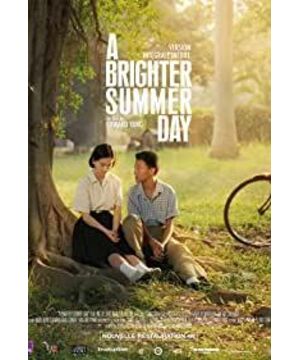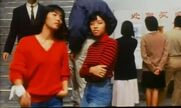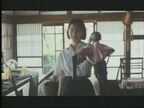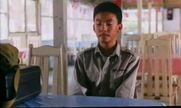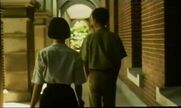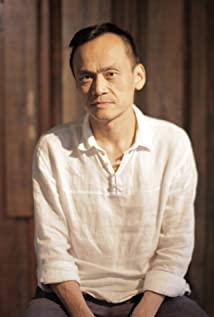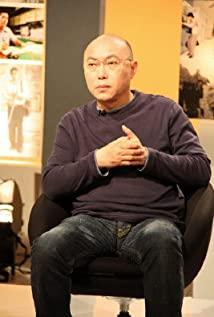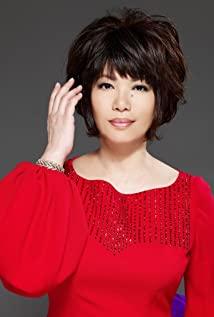I stayed up late last night and re-watched the juvenile murder on Guling Street. The first time I watched it was in 2006, and before I knew it, 13 years had passed.
Many people say that "Guling Street" is about ideals and the setbacks and decay of youth in reality. This statement cannot be wrong. When I first saw this film 13 years ago, I would have thought that Yang Dechang was trying to express the value of youth, dignity, and justice. However, today, I feel that Yang Dechang did not give a value judgment standard, did not give a so-called, Xiao Si is right, Hani is right, father is right, Xiao Ma is right, On the contrary, Slick is wrong, Shandong is wrong, Xiao Ming and Xiao Cui are wrong, the school principal is wrong, the doctor is wrong and so on.
The question Yang Dechang is trying to ask should be this: Why do we think that the beautiful things, the right things, the precious and kind things of human nature have encountered many difficulties and all kinds of destruction in reality? Is it a problem with the value itself? Or is there something wrong with the society itself?
Actually this is not a new problem. As early as Plato's "Utopia", the question of why the righteous people often go through hardships in society is not understood and encountered difficulties. Only hypocritical and shameless people can lead a happy life, and it is also repeatedly mentioned in "Zhuangzi" Yan Hui's short life and Rou Zhi's end of life made a sigh of "heaven and earth are not benevolent".
In the case of the juvenile murder in Guling Street, Yang Dechang tried to ask again: Is the world pluralistic or monolithic? Is there a standard for distinguishing between good and evil? Even after so many years of development, are we slowly getting better? Or, what do we mean by slowly getting better? Does acting in a way that we feel is the right way to achieve good results? What exactly is dignity? An expensive luxury or a basic human right?
Similar themes have also been touched on in film and television works such as "No War in Peiping" and "The Right Way in the World is Vicissitudes of Life". In "Guling Street", Yang Dechang strictly limited the story to the era of military dependents' village: right and wrong are clear, and a sense of justice A very strong and brave father, when a man faced the coercion of the entire power machine, he was finally brutally crushed and bloodied. In the interrogation room, facing an arrogant interrogator who represents power, it is impossible for an individual to rely on justice and morality to fight against the entire bureaucratic system, but must he join the system and share its power? Whether it is the principal, the interrogator, the soldier who cheated with the female doctor, or even the mother of the pony, or the police officers, they all have an authority behind them, the government, the army, and the Ministry of Education. However, power has no morality and justice. The power of power judges the size of the power ratio, but the standard of justice is individual and equality. Therefore, justice is weak and power will always prevail.
The social picture and daily life unfolding under such logic must be the same. Father, Xiao Si, Hani, and even Elvis, who act on justice and honesty, will naturally get a strong backup if they can ally with the pony who represents a powerful military force. However, the force of justice is often naturally non-aligned. It is purely intolerant of impurities, and it is difficult to form a united front, so it is often fragile. Xiao Si turned against Xiao Ming because Xiao Ma had been involved with Xiao Ming, showing a conflict between two different values: Xiao Si's pure love and fantasy belonged to the common people and the lower society, while Xiao Ma, who was born in the upper class, had already seen it. The fragility and emptiness behind this simplicity, Xiaoma sees through this turbulent era, there is no love, women are looking for a sense of security, and men are just looking for excitement. Therefore, he values the brotherhood with Xiao Si more. What Xiaoma likes about Xiao Si is his sense of justice and blood. He wants to protect this idealistic thing, but he fails to understand Xiao Si's dignity and vulnerability as a civilian and an ordinary person: they do not have too much There are many "properties", and love may be the only thing that can make them feel that their lives are valuable. He accidentally destroyed the most cherished value of Xiao Si, causing tragedy.
About the relationship between Xiao Ming and Xiao Cui and Xiao Si. Possibly the most ambiguous part of the film's value: what Xiaocui and Xiaoming said to Xiaosi, respectively, were similar, although not as profound as they could. It's more like Yang Dechang's hard questioning and torture within his own soul: When you think one thing is right, do you have the right and qualification to make others agree with your point of view? This brings us back to the question we asked at the beginning: Are values plural? Can we, in the name of love, get others to accept what we think is right?
This question is too complicated. At the end of "I Crowdfunded a Love Supermarket", I originally wanted to discuss this issue systematically. Can we judge the question of "is shit fragrant or stinky?", because under the reference of multiple values, this There is no answer to the question, and we can't tell whether shit is fragrant or smelly. Therefore, we cannot judge whether Xiao Cui and Xiao Ming are correct, or whether Xiao Si and his father are correct.
Fortunately, after so many years, Taiwanese society has gradually formed that "it is wrong to rely on power to bully kindness, honesty and justice", "everyone has the right and dignity to survive and develop", and "we have the right to be removed from office." Those officials and governments that cannot represent our true will", "I can rely on my own ability and labor to survive instead of relying on power to obtain a little resource".
That's a huge improvement, for me, for most people.
The English title of "Guling Street Teenage Murder Case" A Brighter Summer Day. Brighter uses a comparative level, which may imply the possibility of social goodness.
Why must our abundance be built upon the lack of others? Why can't our happiness be built on the suffering of others? How difficult it is, because this is the process of getting rid of the food chain, getting rid of the attributes of man as an animal, and moving towards divinity.
How far away, yet worth it.
(Byron walking the tightrope at BAMAKO on March 10, 2019)
View more about A Brighter Summer Day reviews


